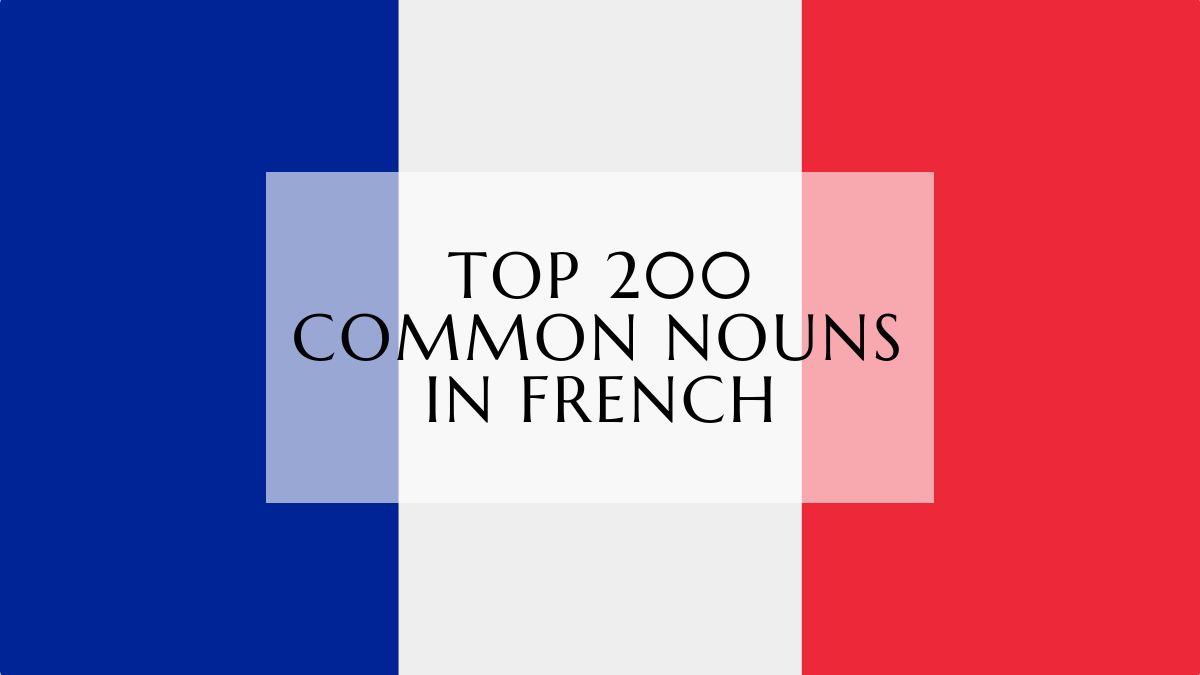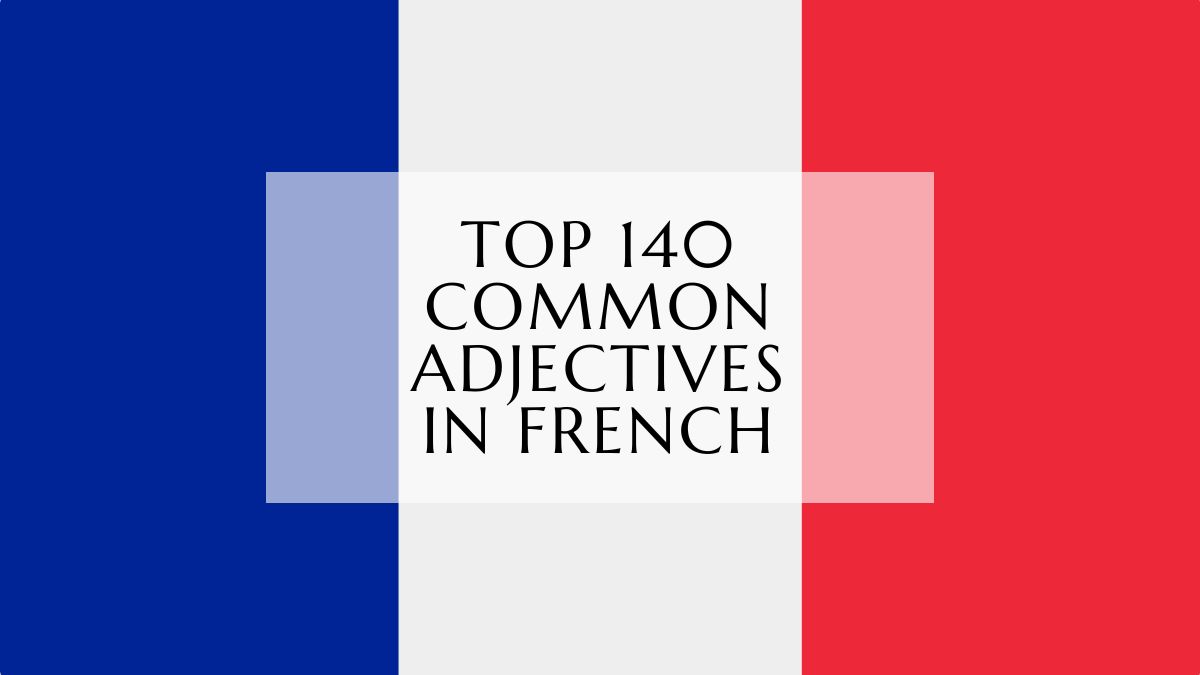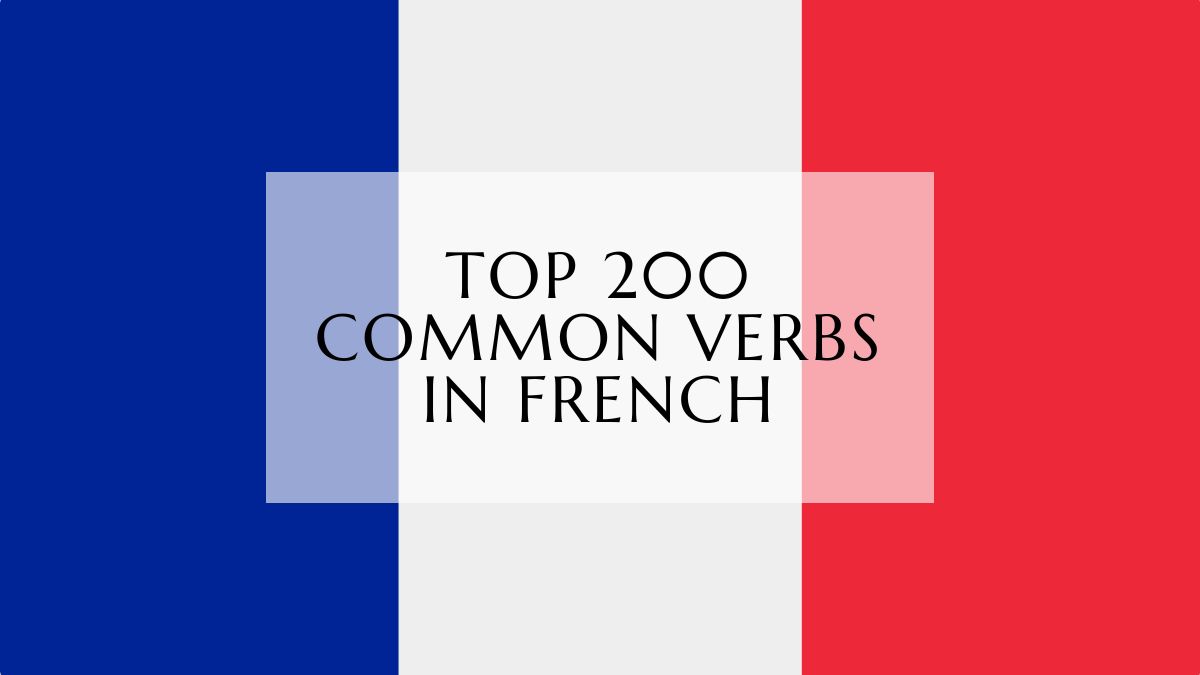In this lesson, we will talk about how to tell the time in French (with audio), it’s one of the skills that we practice daily in our conversations, so we will see how to talk about time and learn some useful vocab, let’s get started!
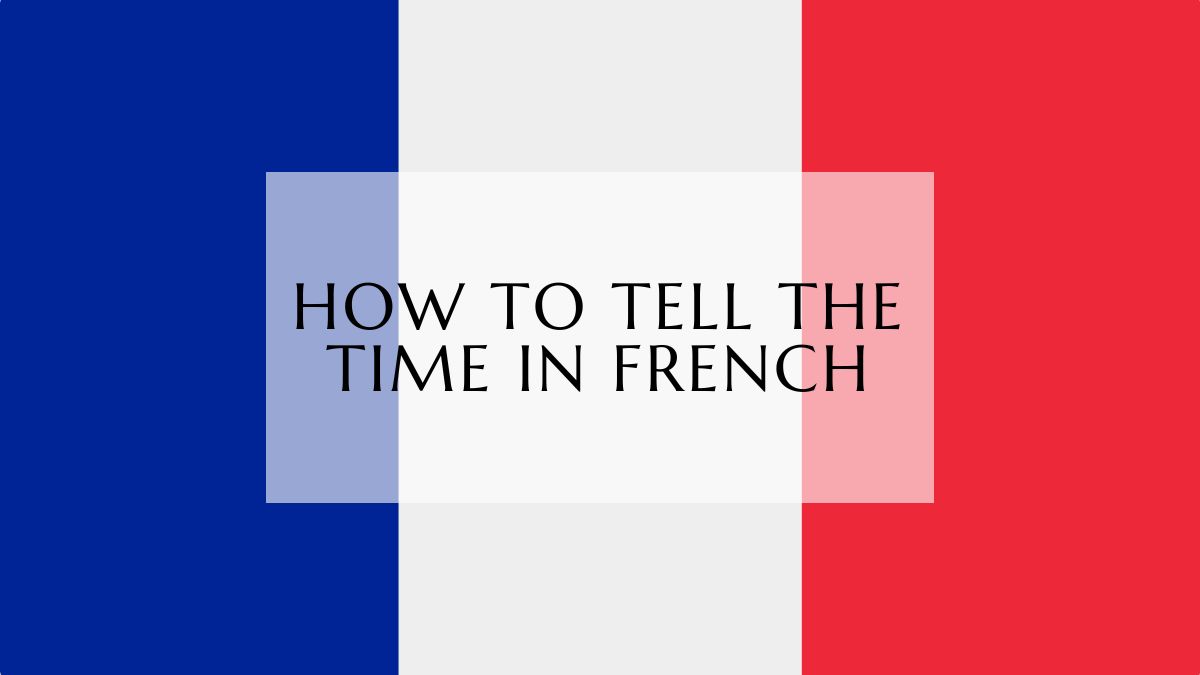
How To Tell The Time In French
How to ask what time is it?
Here are the most common ways to ask the time in French:
Il est quelle heure? (what time is it?)
Il est quelle heure maintenant? (what time is it now?)
Est-ce que tu as l’heure? (do you have the time?)
T’as l’heure? (What is the time? Very informal)
Quelle heure est-il, s’il vous plait? (what time is it, please?)
How to say the time in French
The 24 hour clock:
From one o’clock to twelve o’clock:
| English | French |
| it’s one o’clock | Il est une heure. |
| it’s two o’clock | Il est deux heures. |
| it’s three o’clock | Il est trois heures. |
| it’s four o’clock | Il est quatre heures. |
| it’s five o’clock | Il est cinq heures. |
| it’s six o’clock | Il est six heures. |
| it’s seven o’clock | Il est sept heures. |
| it’s eight o’clock | Il est huit heures. |
| it’s nine o’clock | Il est neuf heures. |
| it’s ten o’clock | Il est dix heures. |
| it’s eleven o’clock | Il est onze heures. |
| it’s twelve o’clock | Il est douze heures |
| 12:00 PM | il est midi. |
Note: you can practice what you’ve learned here, and learn how to pronounce each of the words in our Memrise course here, don’t know how to use the platform or sign up? we’ve got you covered in this easy-to-follow tutorial here.
The afternoon hours:
| English | French |
| it’s one o’clock | Il est treize heures. |
| it’s two o’clock | Il est quatorze heures. |
| it’s three o’clock | Il est quinze heures. |
| it’s four o’clock | Il est seize heures. |
| it’s five o’clock | Il est dix-sept heures. |
| it’s six o’clock | Il est dix-huit heures. |
| it’s seven o’clock | Il est dix-neuf heures. |
| it’s eight o’clock | Il est vingt heures. |
| it’s nine o’clock | Il est vingt et une heures. |
| it’s ten o’clock | Il est vingt-deux heures. |
| it’s eleven o’clock | Il est vingt-trois heures. |
| it’s twelve o’clock | Il est minuit. |
| 12:00 AM | Il est minuit. |
The 12 hour clock:
When using the 12 hour clock, you have to indicate which part of the day it is:
- In the morning – du matin
- In the afternoon – de l’après-midi
- In the evening – du soir
- Noon (12pm) – midi
- Midnight (12pm) – minuit.
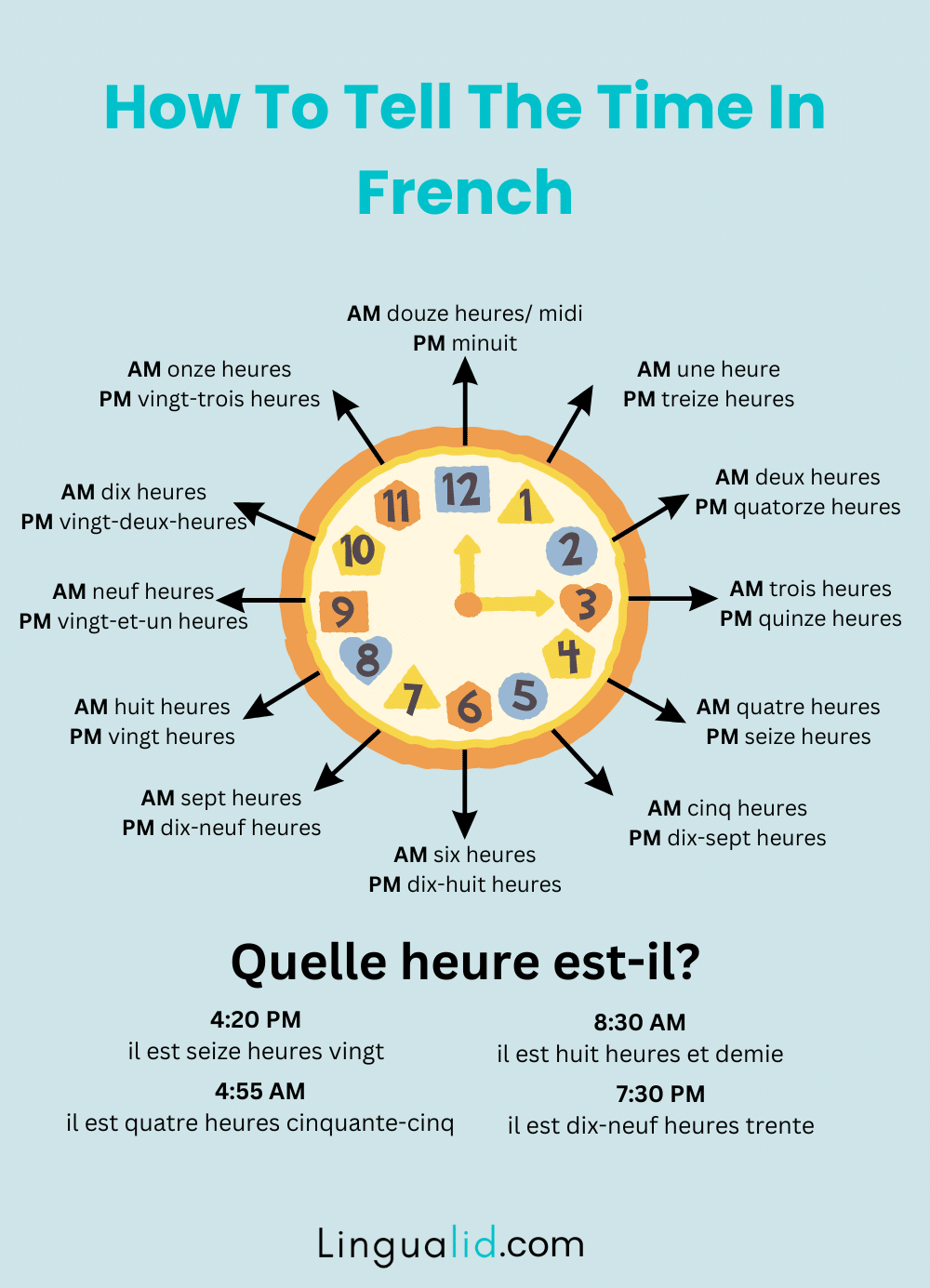
The fractions of time:
The fractions of time (like half, quarter) are used only with the 12 hour format, and they are:
- For 15 minutes past the hour : — et quart E.g: Il est cinq heures et quart – It’s a quarter past five (5:15)
- For 30 minutes past the hour : — et demie E.g: Il est 7 heures et demie – It’s half past seven (7:30)
- For 15 minutes before the hour : — moins le quart E.g: Il est une heure moins le quart – It is a quarter until 1 (12:45)
Related: Numbers in French
How to tell the hours and minutes
- 4:15 AM – il est quatre heures quinze
- 4:20 PM – il est seize heures vingt
- 4:30 PM – il est seize heures trente
- 4:30 PM – il est quatre heures et demie
- 4:45 – il est cinq heures moins le quart
- 4:55 AM– il est quatre heures cinquante-cinq
- 7:30 PM – il est dix-neuf heures trente
Telling Time in French: A Study Guide
Quiz
Instructions: Answer the following questions in 2-3 sentences each.
- What are two ways to ask “What time is it?” in French?
- How do you say “It is 3 o’clock” in French using the 24-hour clock?
- How do you say “It is 10:00 PM” in French using the 12-hour clock?
- What is the French equivalent of “a quarter past” when telling time?
- Provide the French phrase for “half past” when expressing time.
- How do you say “a quarter to” in French when telling time?
- Translate “It is 6:15 AM” into French.
- Translate “It is 9:30 PM” into French.
- How would you express “It is 1:45 PM” in French?
- What are the French terms for “in the morning,” “in the afternoon,” and “in the evening”?
Answer Key
- “Quelle heure est-il?” or “Il est quelle heure?”
- “Il est quinze heures.”
- “Il est dix heures du soir.”
- “Et quart”
- “Et demie”
- “Moins le quart”
- “Il est six heures quinze du matin.”
- “Il est vingt et une heures trente.”
- “Il est deux heures moins le quart (de l’après-midi).”
- “Du matin,” “de l’après-midi,” and “du soir.”
Get a pdf file of this lesson and other 1000 essential French words now, write your email so we can send it to you:
Happy learning!
Oualid Cheddadi is the founder of Lingualid, a platform that inspires independent language learners worldwide, regardless of the language they are learning. The name “Lingualid” is derived from the Portuguese word for “language,” “língua,” and the last three letters of Oualid’s name, “Lid.”

